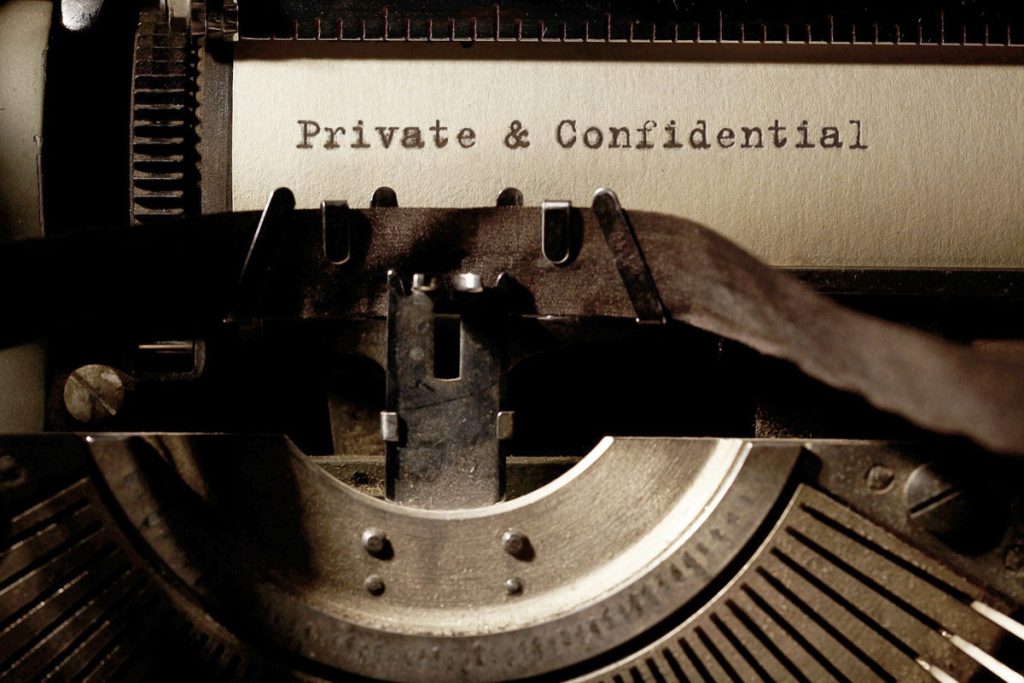
The Crucial Role of Whistleblowing Departments in Businesses and Universities
In businesses and academic institutions, maintaining integrity, ethics, and transparency is paramount. Whistleblowing, the act of reporting wrongdoing within an organization, plays a pivotal role in upholding these values. Establishing dedicated whistleblowing departments in both businesses and universities is not just a legal requirement in many jurisdictions, but it is also a proactive step toward fostering a culture of accountability and ethical behavior.
- Uncovering Unethical Practices: Whistleblowing departments act as a critical mechanism for uncovering unethical practices within an organization. Employees or students may be witnesses to fraudulent activities, corruption, or other misconduct that could compromise the integrity of the institution. A dedicated department provides a confidential channel for individuals to report such incidents without fear of retaliation.
- Protection for Whistleblowers: Fear of reprisal is a significant deterrent for potential whistleblowers. Having a designated whistleblowing department ensures the protection of individuals who come forward with information about wrongdoing. This not only safeguards the whistleblower but also encourages others to step forward, creating a safer environment for reporting.
- Legal Compliance: Many jurisdictions mandate the existence of whistleblowing mechanisms in businesses and educational institutions. By establishing dedicated departments, organizations demonstrate their commitment to complying with legal requirements. This not only helps in avoiding legal complications but also reflects positively on the organization’s commitment to ethical conduct.
- Preserving Reputations: The reputation of a business or university is one of its most valuable assets. A single incident of unethical behavior, if left unaddressed, can tarnish the reputation built over years. Whistleblowing departments act as a preventive measure by allowing organizations to address and rectify issues internally, preventing the escalation of problems to the public domain.
- Fostering a Culture of Accountability: Whistleblowing departments contribute to the creation of a culture of accountability within an organization. When employees or students know that unethical behavior will not be tolerated and that there is a mechanism for reporting such behavior, it promotes a sense of responsibility and ethical conduct throughout the institution.
- Internal Issue Resolution: In many cases, internal resolution of issues is more effective and efficient than external intervention. Whistleblowing departments provide a structured process for handling complaints, allowing organizations to address and rectify problems before they escalate. This internal resolution can save resources and protect the institution’s interests.
- Improving Organizational Governance: Whistleblowing departments contribute to better organizational governance. By actively seeking information on potential misconduct, these departments aid in identifying areas where policies and procedures may need improvement. This proactive approach enhances the overall governance structure of businesses and universities.
What should you do if your complaint is ignored?
If your complaint is ignored, it can be disheartening and frustrating, but there are several steps you can take to escalate the matter and seek resolution. Here’s a guide on what to do if your complaint is being neglected:
- Follow-Up: Start by following up on your initial complaint. Send a polite and professional email or letter to the relevant parties, reiterating your concerns and requesting an update on the status of your complaint. Sometimes, issues get lost in the shuffle, and a simple follow-up can prompt a response.
- Contact Higher Authorities: If your initial complaint was made to a specific individual or department, consider escalating the matter to higher authorities within the organization. Find out who the supervisor or manager of the individual or department is and address your concerns to them. Clearly outline the details of your complaint and the steps you’ve taken so far.
- Review Internal Policies: Check the organization’s policies and procedures regarding the handling of complaints. There may be specific steps outlined for escalating complaints internally. Follow these procedures to ensure that you are taking the appropriate channels and allowing the organization to address your concerns through its established processes.
- Ombudsman or Internal Mediation: Some organizations have an ombudsman or internal mediation services. These are neutral third parties that can help facilitate communication and resolution between parties. If available, consider reaching out to these services to mediate and resolve the issue.
- External Regulatory Bodies: Depending on the nature of your complaint and the industry or sector, there may be external regulatory bodies that oversee the conduct of organizations. Research whether there are any relevant regulatory bodies and, if appropriate, file a complaint with them. Be sure to provide all relevant documentation and details.
- Legal Advice: If your complaint involves a serious violation of laws or regulations, seeking legal advice may be necessary. Consult with a solicitor/lawyer/attorney to understand your rights and options. They can guide you on the best course of action and help you navigate any legal avenues available to you.
- Publicize Your Concerns: While this should be a last resort, in some cases, bringing public attention to your concerns through social media, online reviews, or other public platforms may prompt the organization to address the issue. However, consider the potential consequences and legal implications before taking this step.
- Document Everything: Throughout the process, keep thorough records of all communications, including emails, letters, and phone calls. Document dates, times, and the names of individuals involved. This documentation can be valuable if you need to prove that you made a reasonable effort to resolve the issue through proper channels.
If you find that a University does not have a whistleblowing department or a direct complaints number.
Here are some general steps you can take:
- Check Official Channels: Verify the information on the university’s official website. Look for sections related to policies, procedures, or a dedicated complaints process. Contact information for relevant departments or individuals responsible for handling complaints may be provided.
- Contact Human Resources or Administration: If there is no specific whistleblowing department, consider reaching out to the human resources or administration department. They may be able to guide you on the appropriate channels for addressing your concerns or may have information on existing procedures.
- Use General Contact Information: Utilize the general contact information provided by the university, such as the main switchboard or email addresses for general inquiries. Explain your situation and ask for guidance on how to submit a complaint or report concerns.
- Student Support Services: If you are a student, explore the resources provided by student support services. Advisors or counselors may offer guidance on addressing concerns or provide information on the appropriate channels for filing complaints.
- University Policies: Review the university’s policies and procedures related to complaints. This information may be available on the official website or in student handbooks. Look for details on how the university handles grievances or concerns.
- Faculty or Department Contacts: Contact the relevant faculty or department directly. They may have designated staff members responsible for handling complaints or concerns within specific academic areas.
- Ombudsman Services: Some universities have ombudsman services that can assist in resolving disputes or concerns. Check whether Cardiff Metropolitan University has an ombudsman or a similar service, and if so, contact them for assistance.
The impact on mental health when not being able to complain or being stonewalled.
The inability to voice complaints or being stonewalled in the face of legitimate concerns can have a profound impact on mental health. The psychological toll of feeling unheard, dismissed, or unable to address issues within an organization can manifest in various ways, affecting an individual’s well-being and overall mental health.
- Feelings of Powerlessness: When individuals are unable to voice their complaints or are met with silence or resistance, they may experience a profound sense of powerlessness. This feeling of being unable to influence or change their circumstances can contribute to a loss of control and autonomy, triggering stress and anxiety.
- Increased Stress and Anxiety: The lack of an outlet for expressing concerns or complaints can lead to heightened stress and anxiety. Unresolved issues may fester, and the constant worry about the consequences of not being heard can contribute to a persistent state of unease.
- Isolation and Alienation: Being stonewalled or facing obstacles in expressing complaints can create a sense of isolation. Individuals may feel alienated from the organization or community, as the lack of communication leaves them feeling disconnected and unsupported.
- Deterioration of Mental Well-being: Chronic frustration, disappointment, and the emotional toll of unaddressed concerns can contribute to a deterioration of mental well-being. This may manifest as symptoms of depression, increased irritability, difficulty concentrating, and a general decline in overall mood.
- Impact on Productivity and Performance: The mental health consequences of not being able to complain or being stonewalled can extend to one’s professional or academic performance. The preoccupation with unresolved issues can hamper concentration, creativity, and productivity, creating a negative cycle that affects both personal and professional aspects of life.
- Physical Health Consequences: Prolonged stress and anxiety resulting from an inability to complain or being stonewalled can have physical health consequences. This may include disrupted sleep patterns, headaches, digestive issues, and a weakened immune system.
- Undermining Trust and Confidence: Feeling ignored or dismissed erodes trust in the organization or institution. Individuals may begin to question the sincerity of leadership, the effectiveness of internal processes, and the organization’s commitment to the well-being of its members. This erosion of trust can further contribute to mental health challenges.
- Impact on Interpersonal Relationships: The strain caused by unaddressed complaints can extend to personal relationships. Individuals may find it challenging to engage positively with others when they are grappling with the stress and emotional burden associated with unresolved issues.
Conclusion
The establishment of whistleblowing departments in businesses and universities is not merely a legal requirement but a strategic imperative. Such departments contribute to the creation of a transparent and ethical culture, protecting organizations from internal threats while fostering trust among employees, students, and stakeholders. Embracing whistleblowing as a constructive mechanism for continuous improvement ensures that businesses and universities remain beacons of integrity and accountability in an ever-evolving landscape.
Whistleblowing
It’s crucial to approach the situation professionally and document your communications. If you encounter challenges in addressing your concerns internally, you may also consider seeking advice from external bodies, such as regulatory agencies or ombudsman services in your region.
Mental Health
Addressing stonewalling and not being able to complain causes mental health challenges. Individuals must seek support from friends, family, or mental health professionals. Additionally, organizations should recognize the importance of fostering open communication channels, providing avenues for expressing concerns, and demonstrating a commitment to resolving issues promptly.
Remember to remain professional and factual in all your communications, even if you’re frustrated. Clear and concise communication will strengthen your case and demonstrate that you have taken a reasonable and measured approach to resolving the matter. If all else fails, consulting with legal professionals may provide further guidance on your specific situation.
Further Reading
- COMPLAINTS AND WHISTLEBLOWING (gov.wales)
- Education Act 2002 (legislation.gov.uk)
- School complaints procedures: guidance | GOV.WALES
- Whistleblowing in schools: guidance | GOV.WALES
- Procedures for whistleblowing in schools GOV.WALES
- Office of the Independent Adjudicator for Higher Education – OIAHE (The Office Of Independent Adjudicator For Higher Education)
- Protect – Speak up stop harm – Protect – Speak up stop harm (protect-advice.org.uk)
- Whistleblowing or grievance? | Protect – Speak up and stop harm (protect-advice.org.uk) (If you get stonewalled by an organization reach out to this charity)
- Contact our Advice Line – Protect – Speak up stop harm (protect-advice.org.uk)
- Environmental Whistleblowing Toolkit (protect-advice.org.uk)
- How to complain and get compensation from your university – Save the Student
- Whistleblowing-guidance-and-model-policy.pdf (unison.org.uk)
- Grievances | Disputes and grievances | UNISON National
- Step 1: Understanding the options – Formal grievance procedure – Acas
- Acas Code of Practice on disciplinary and grievance procedures | Acas
- WhistleblowersUK (wbuk.org)
#whistleblowing #hr #cardiffmetunivesity #studentsunion #studentservices #complaints #reporting #stonewalling #mentalhealth
ADVERTISEMENT
DOMAIN NAME FOR SALE

ALL IN ONE BUSINESS TOOLBOX
PROMOTE YOUR BUSINESS WITH AFFILIATE MARKETING



Cymru Marketing Journal (CMJUK) Offers Digital Marketing, Content Writing, Website Creation, SEO, and Domain Brokering.
An open platform that invites contributors and domain sellers serves as a dynamic marketplace where a diverse range of talents and offerings can converge. This platform acts as a collaborative space where individuals or businesses can share their expertise, creativity, and products with a broader audience.












